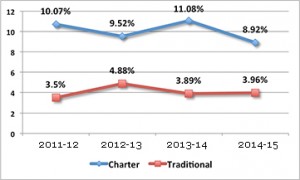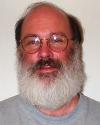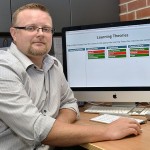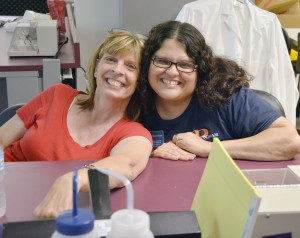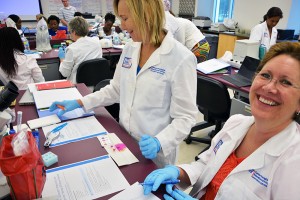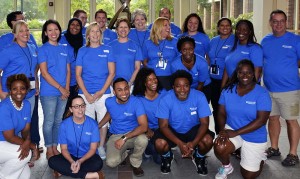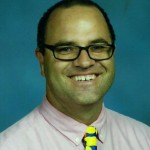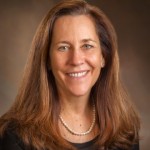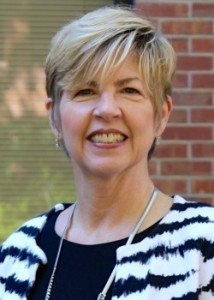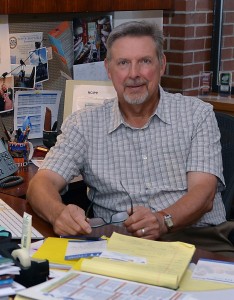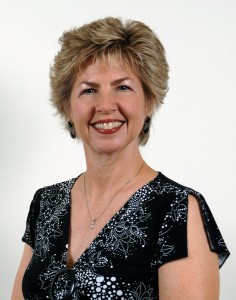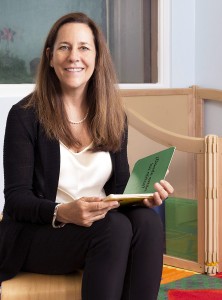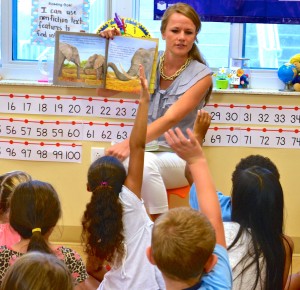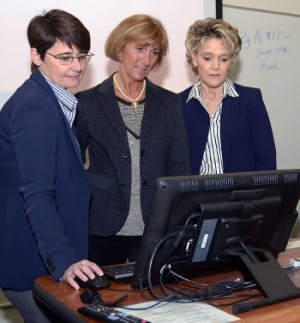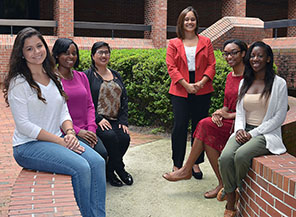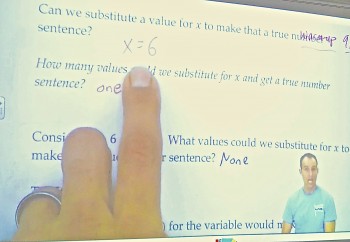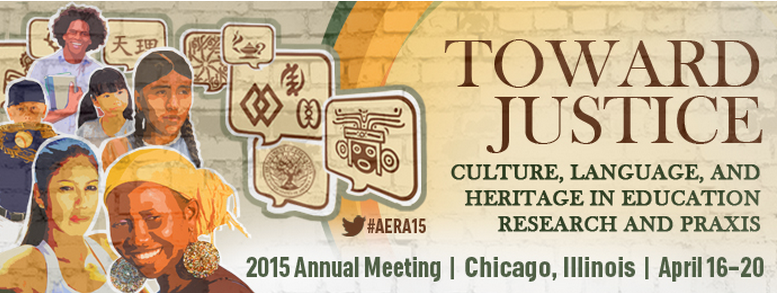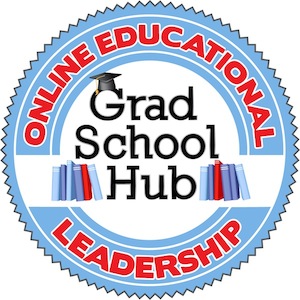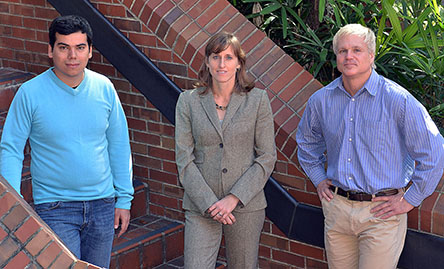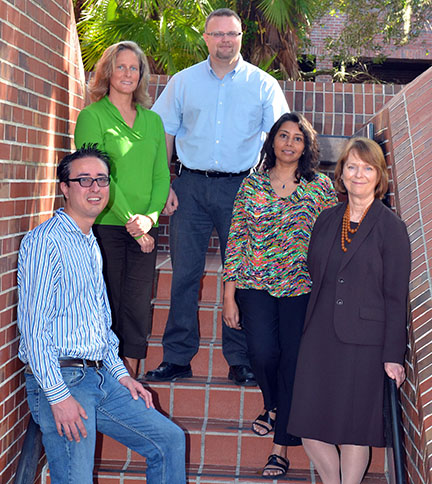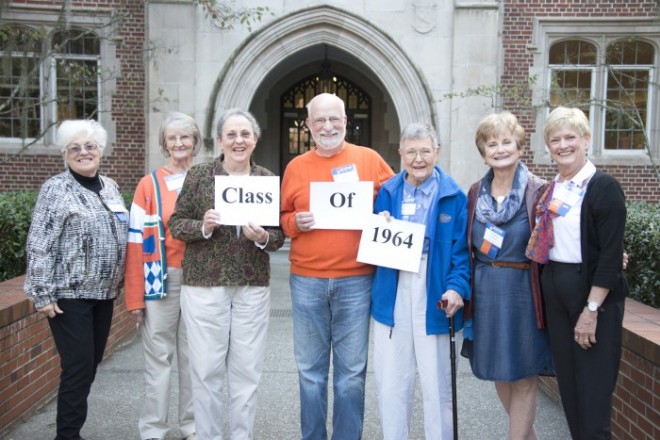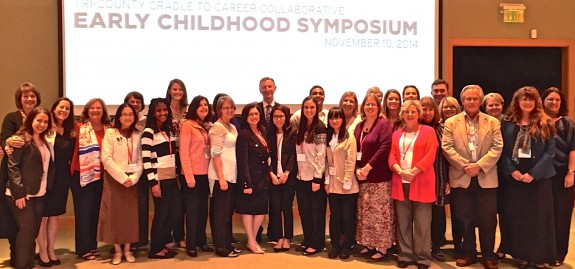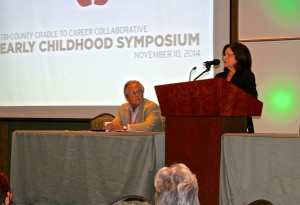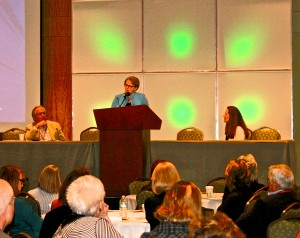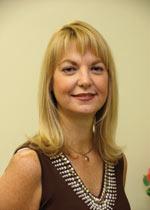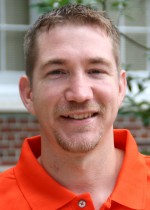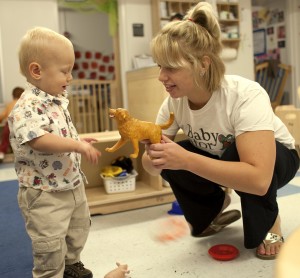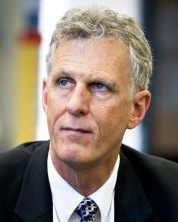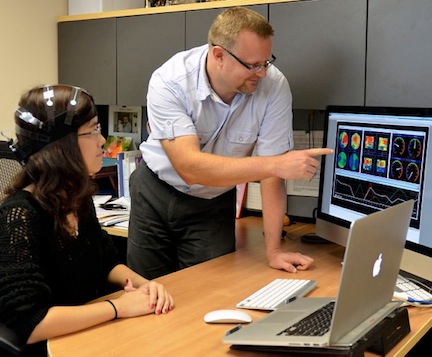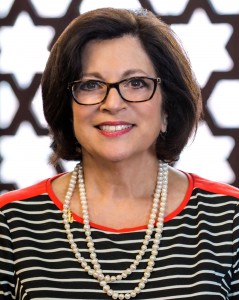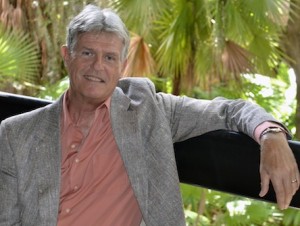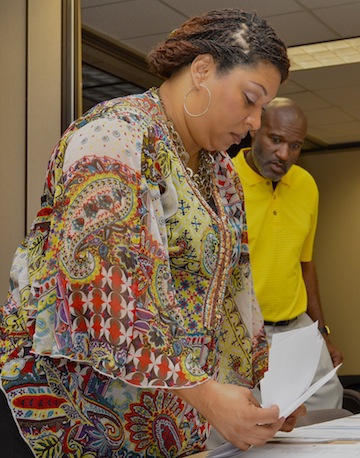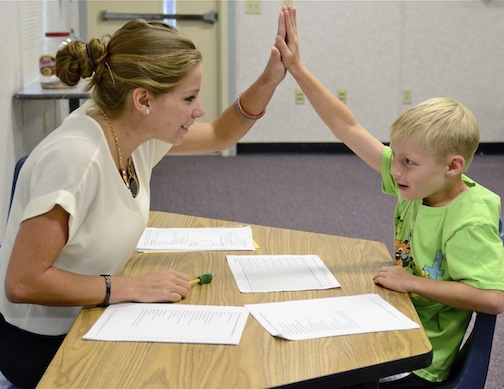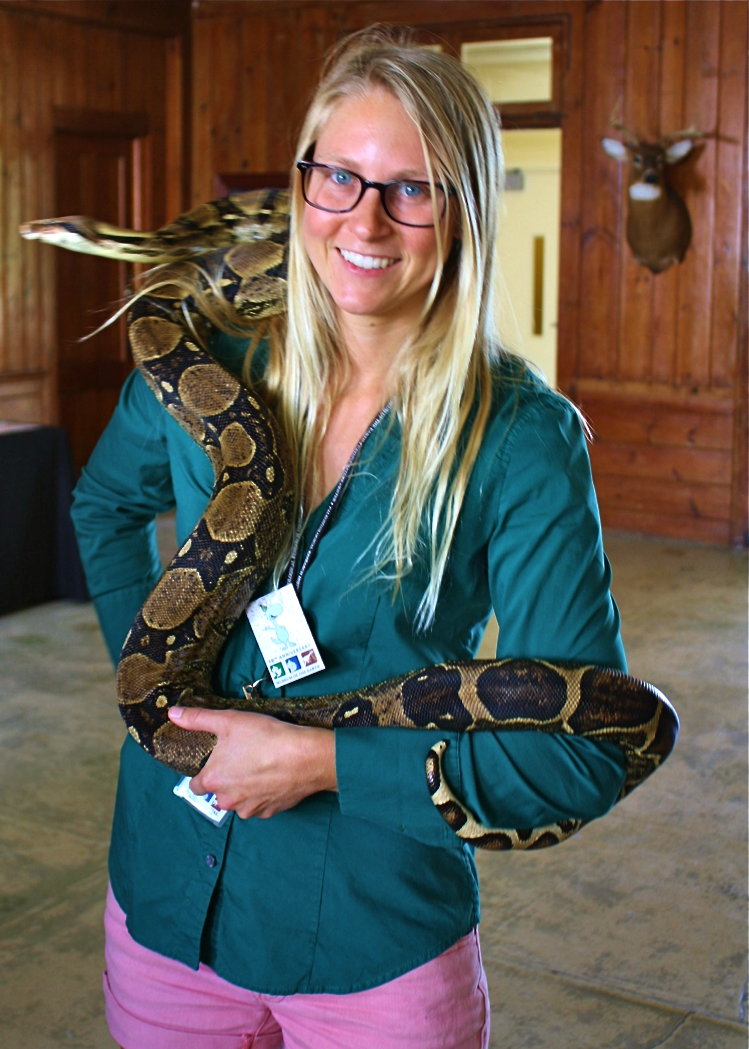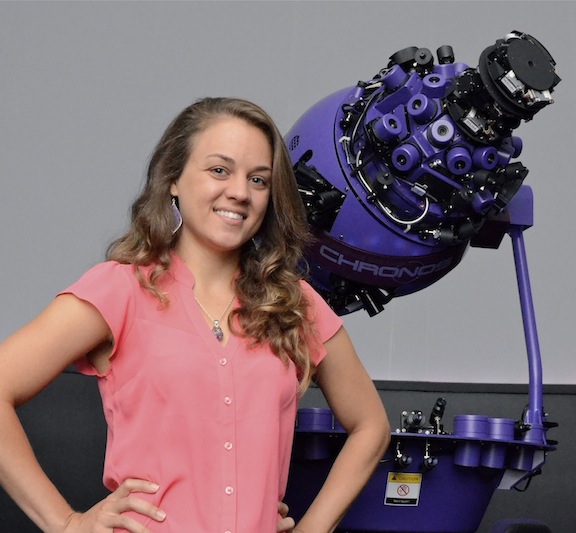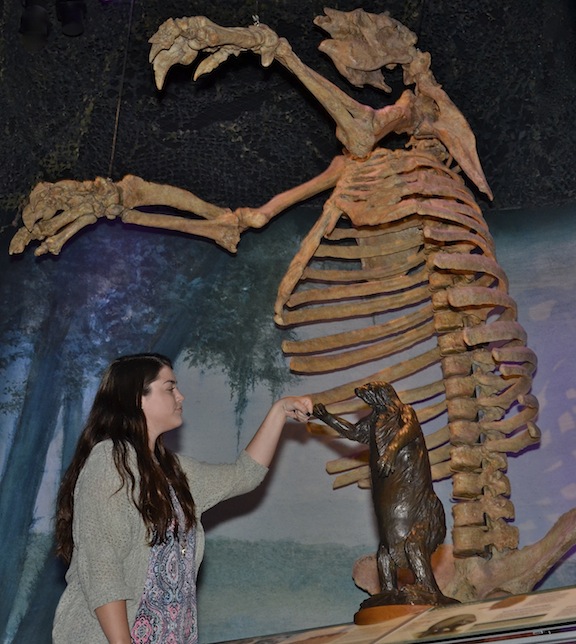https://education.ufl.edu/news/files/2023/01/Feature-2-1200-x-633.jpg
633
1200
kaylasharp
https://education.ufl.edu/news/files/2019/07/News-1-300x65.png
kaylasharp2023-01-24 06:02:312024-04-10 15:31:25UF College of Education is the Nation’s Best Online Graduate Education Program
https://education.ufl.edu/news/files/2022/03/2023-Graduate-Education-Programs-Ranking_feature.jpg
633
1200
kaylasharp
https://education.ufl.edu/news/files/2019/07/News-1-300x65.png
kaylasharp2022-03-29 08:00:122022-03-29 09:51:50UF College of Education Demonstrates Consistent Leadership in U.S. News Rankings
https://education.ufl.edu/news/files/2020/06/Untitled-design-10.png
642
1103
macaylabricarell
https://education.ufl.edu/news/files/2019/07/News-1-300x65.png
macaylabricarell2021-06-29 13:02:012023-01-23 10:16:00UF professor named editor of journal
https://education.ufl.edu/news/files/2020/08/mary-brownell.jpg
586
862
katelynvogt
https://education.ufl.edu/news/files/2019/07/News-1-300x65.png
katelynvogt2020-08-05 11:22:592021-01-25 10:40:50Mary Brownell named UF Distinguished Professor
https://education.ufl.edu/news/files/2019/11/WebQuote.jpg
600
1200
kaylasharp
https://education.ufl.edu/news/files/2019/07/News-1-300x65.png
kaylasharp2019-12-12 13:24:002019-12-12 15:35:22Novelist’s continued support helps scale up UF literacy initiatives
https://education.ufl.edu/news/files/2019/07/News-1-300x65.png
0
0
https://education.ufl.edu/news/files/2019/07/News-1-300x65.png
2017-08-23 13:35:502019-07-12 11:54:50Norman Hall renovations project jumps on fast track
https://education.ufl.edu/news/files/2019/07/News-1-300x65.png
0
0
https://education.ufl.edu/news/files/2019/07/News-1-300x65.png
2016-12-01 12:07:062016-12-01 12:39:04Learning Gains from our Brains
https://education.ufl.edu/news/files/2019/07/News-1-300x65.png
0
0
https://education.ufl.edu/news/files/2019/07/News-1-300x65.png
2016-09-08 13:32:572016-09-16 13:23:06UF College of Education ranked in top 10 by USA Today
https://education.ufl.edu/news/files/2019/07/News-1-300x65.png
0
0
https://education.ufl.edu/news/files/2019/07/News-1-300x65.png
2016-08-26 14:28:372016-09-23 12:26:00Early Learning Florida program garners top international accreditation
https://education.ufl.edu/news/files/2019/07/News-1-300x65.png
0
0
https://education.ufl.edu/news/files/2019/07/News-1-300x65.png
2016-06-23 16:47:402016-06-23 18:33:1020 states join UF's sweeping reform effort to boost teaching of students with disabilities
https://education.ufl.edu/news/files/2019/07/News-1-300x65.png
0
0
https://education.ufl.edu/news/files/2019/07/News-1-300x65.png
2016-04-06 13:39:362016-04-21 10:22:02COE well represented at world's largest education research meeting
https://education.ufl.edu/news/files/2019/07/News-1-300x65.png
0
0
https://education.ufl.edu/news/files/2019/07/News-1-300x65.png
2016-03-16 09:21:412016-03-16 17:59:52US News ranks UF College of Education 20th; 2 programs in top 10
https://education.ufl.edu/news/files/2019/07/News-1-300x65.png
0
0
https://education.ufl.edu/news/files/2019/07/News-1-300x65.png
2016-02-22 11:20:292016-05-06 14:31:1540 educators chosen for UF's new leadership network
https://education.ufl.edu/news/files/2019/07/News-1-300x65.png
0
0
https://education.ufl.edu/news/files/2019/07/News-1-300x65.png
2016-02-17 15:34:522016-05-06 14:52:0240 Florida educators chosen for new UF leadership network
https://education.ufl.edu/news/files/2019/07/News-1-300x65.png
0
0
https://education.ufl.edu/news/files/2019/07/News-1-300x65.png
2016-01-26 12:00:252016-01-26 12:05:13Education professor wins $1.2 million grant to lead UF team on 3-D paleontology technology project
https://education.ufl.edu/news/files/2019/07/News-1-300x65.png
0
0
https://education.ufl.edu/news/files/2019/07/News-1-300x65.png
2016-01-19 10:35:512016-01-19 16:41:38Study explores impact of 'active learning classroom' design
https://education.ufl.edu/news/files/2016/01/Number1Digital-02-copy-web-banner.png
1492
4000
https://education.ufl.edu/news/files/2019/07/News-1-300x65.png
2016-01-12 10:57:402016-03-22 14:57:52UF online graduate education rated best in nation
https://education.ufl.edu/news/files/2019/07/News-1-300x65.png
0
0
https://education.ufl.edu/news/files/2019/07/News-1-300x65.png
2016-01-05 11:40:292016-01-13 11:08:31UF researchers find high teacher attrition rates at charter schools
https://education.ufl.edu/news/files/2015/11/Pasha-EEG6-1024x380.jpg
380
1024
https://education.ufl.edu/news/files/2019/07/News-1-300x65.png
2015-11-25 11:44:312016-01-27 09:17:05Ed. technology researcher lands record five NSF grants
https://education.ufl.edu/news/files/2015/11/jon-mundorf-japan-spotlight.jpg
380
1024
https://education.ufl.edu/news/files/2019/07/News-1-300x65.png
2015-11-24 12:20:152016-01-04 14:34:38P.K. Yonge goes international
https://education.ufl.edu/news/files/2015/11/Kathy-Savage-Houda-Darwiche-10241.jpg
380
1024
https://education.ufl.edu/news/files/2019/07/News-1-300x65.png
2015-11-23 13:43:192015-11-30 10:48:35UF precollegiate center keeps teachers up to date on bioscience technologies
https://education.ufl.edu/news/files/2015/10/social-networking-banner-3.jpg
379
1024
https://education.ufl.edu/news/files/2019/07/News-1-300x65.png
2015-11-03 11:11:272016-05-06 13:27:33UF study: Majority of Florida school districts lack social media policies for teachers
https://education.ufl.edu/news/files/2019/07/News-1-300x65.png
0
0
https://education.ufl.edu/news/files/2019/07/News-1-300x65.png
2015-10-29 14:56:022015-10-29 14:56:02UF early childhood intervention aims to help elementary teachers, students succeed
https://education.ufl.edu/news/files/2019/07/News-1-300x65.png
0
0
https://education.ufl.edu/news/files/2019/07/News-1-300x65.png
2015-10-19 13:18:162015-10-19 13:19:02New 'Teaching for Social Justice' group hosting panel discussion Oct. 21 on Women in Higher Education
https://education.ufl.edu/news/files/2019/07/News-1-300x65.png
0
0
https://education.ufl.edu/news/files/2019/07/News-1-300x65.png
2015-07-16 16:30:122015-07-16 16:34:47UF center partners with states' school system chiefs to boost teaching of students with disabilities
https://education.ufl.edu/news/files/2015/07/Sindelar8.jpg
494
1334
https://education.ufl.edu/news/files/2019/07/News-1-300x65.png
2015-07-07 11:18:232015-12-17 10:52:23Paul Sindelar joins select group as UF Distinguished Professor
https://education.ufl.edu/news/files/2019/07/News-1-300x65.png
0
0
https://education.ufl.edu/news/files/2019/07/News-1-300x65.png
2015-06-11 11:39:112015-07-07 11:44:035 more states join UF's $25M effort to improve teaching of students with disabilities
https://education.ufl.edu/news/files/2015/06/New-banner.jpg
741
2001
https://education.ufl.edu/news/files/2019/07/News-1-300x65.png
2015-06-10 10:43:472015-10-09 12:07:11Conroy named as first Zucker Professor in Early Childhood Studies
https://education.ufl.edu/news/files/2019/07/News-1-300x65.png
0
0
https://education.ufl.edu/news/files/2019/07/News-1-300x65.png
2015-04-23 09:20:152015-04-23 09:40:04UF awarded $2.7M for new center aiming to transform elementary teacher preparation
https://education.ufl.edu/news/files/2019/07/News-1-300x65.png
0
0
https://education.ufl.edu/news/files/2019/07/News-1-300x65.png
2015-04-22 14:12:132015-04-22 14:12:13Job prospects look brighter for minority pre-service teachers after FFMT symposium
https://education.ufl.edu/news/files/2019/07/News-1-300x65.png
0
0
https://education.ufl.edu/news/files/2019/07/News-1-300x65.png
2015-04-14 10:31:502015-04-14 11:50:49UF's free tutoring app helping Fla. students prep for high-stakes algebra exam
https://education.ufl.edu/news/files/2019/07/News-1-300x65.png
0
0
https://education.ufl.edu/news/files/2019/07/News-1-300x65.png
2015-04-13 14:07:082015-04-22 13:04:18COE scholars make strong showing at massive AERA meeting
https://education.ufl.edu/news/files/2019/07/News-1-300x65.png
0
0
https://education.ufl.edu/news/files/2019/07/News-1-300x65.png
2015-04-01 14:16:372015-04-01 14:16:37Online Ed. Leadership program gets another high ranking
https://education.ufl.edu/news/files/2019/07/News-1-300x65.png
0
0
https://education.ufl.edu/news/files/2019/07/News-1-300x65.png
2015-03-05 13:30:482015-03-05 13:33:20Online master's in reading education program ranked 2nd in U.S. by BestSchools.org
https://education.ufl.edu/news/files/2019/07/News-1-300x65.png
0
0
https://education.ufl.edu/news/files/2019/07/News-1-300x65.png
2015-02-19 14:25:412015-02-27 10:54:55Gainesville Sun -- Board of Governors supports Norman Hall renovation
https://education.ufl.edu/news/files/2019/07/News-1-300x65.png
0
0
https://education.ufl.edu/news/files/2019/07/News-1-300x65.png
2015-01-21 08:00:452015-07-30 11:08:08UF researchers call for immediate end to corporal punishment in all Florida schools
https://education.ufl.edu/news/files/2019/07/News-1-300x65.png
0
0
https://education.ufl.edu/news/files/2019/07/News-1-300x65.png
2015-01-07 17:10:472015-01-07 17:50:37COE online program rated best in nation for student selectivity; jumps to 13th overall in U.S. News rankings
https://education.ufl.edu/news/files/2019/07/News-1-300x65.png
0
0
https://education.ufl.edu/news/files/2019/07/News-1-300x65.png
2014-12-11 13:12:002016-05-06 14:13:31Alachua couple's 'unrestricted' gift will boost COE's areas of greatest need
https://education.ufl.edu/news/files/2019/07/News-1-300x65.png
0
0
https://education.ufl.edu/news/files/2019/07/News-1-300x65.png
2014-12-09 14:00:092014-12-09 14:00:09Ed. tech's online master's program ranked 9th in U.S.
https://education.ufl.edu/news/files/2019/07/News-1-300x65.png
0
0
https://education.ufl.edu/news/files/2019/07/News-1-300x65.png
2014-12-05 14:06:392014-12-05 17:14:0050-year EduGator alums offer advice for today's students
https://education.ufl.edu/news/files/2019/07/News-1-300x65.png
0
0
https://education.ufl.edu/news/files/2019/07/News-1-300x65.png
2014-11-19 16:48:282015-02-11 10:05:04COE-UF contingent makes splash at inaugural early childhood symposium
https://education.ufl.edu/news/files/2019/07/News-1-300x65.png
0
0
https://education.ufl.edu/news/files/2019/07/News-1-300x65.png
2014-11-06 11:26:122014-11-06 11:26:12School teams with COE faculty to redefine how kids learn ‘STEAM’ subjects
https://education.ufl.edu/news/files/2019/07/News-1-300x65.png
0
0
https://education.ufl.edu/news/files/2019/07/News-1-300x65.png
2014-10-30 07:30:232014-10-29 10:25:28COE awarded $1 million to boost skills of Florida's early learning educators
https://education.ufl.edu/news/files/2019/07/News-1-300x65.png
0
0
https://education.ufl.edu/news/files/2019/07/News-1-300x65.png
2014-10-15 12:15:362014-10-20 10:36:22Incentive grant boosts ed. tech professor's research merging education and neuroscience
https://education.ufl.edu/news/files/2014/10/Early-Child-Overlay-resized.png
355
959
https://education.ufl.edu/news/files/2019/07/News-1-300x65.png
2014-10-11 10:00:402014-10-13 15:03:34Alumna makes lead gift for $10M early childhood initiative
https://education.ufl.edu/news/files/2019/07/News-1-300x65.png
0
0
https://education.ufl.edu/news/files/2019/07/News-1-300x65.png
2014-10-07 14:15:572019-08-06 13:31:17Five more states join UF center's $25 million effort to transform special education teaching
https://education.ufl.edu/news/files/2019/07/News-1-300x65.png
0
0
https://education.ufl.edu/news/files/2019/07/News-1-300x65.png
2014-09-17 10:52:562014-10-03 09:04:42Ed. Leadership ranked 5th nationally among online master's degree programs
https://education.ufl.edu/news/files/2019/07/News-1-300x65.png
0
0
https://education.ufl.edu/news/files/2019/07/News-1-300x65.png
2014-08-14 10:20:532014-08-14 10:20:53Mentoring program expected to make a difference for minority children
https://education.ufl.edu/news/files/2019/07/News-1-300x65.png
0
0
https://education.ufl.edu/news/files/2019/07/News-1-300x65.png
2014-07-29 10:18:082016-05-06 14:21:59Summer literacy camp benefits UF student tutors and youngsters with reading disabilities
https://education.ufl.edu/news/files/2019/07/News-1-300x65.png
0
0
https://education.ufl.edu/news/files/2019/07/News-1-300x65.png
2014-07-28 16:52:082014-07-29 10:32:09'Wearing' a boa constrictor, fist bumping a sloth make UFTeach summer internships memorable
Scroll to top

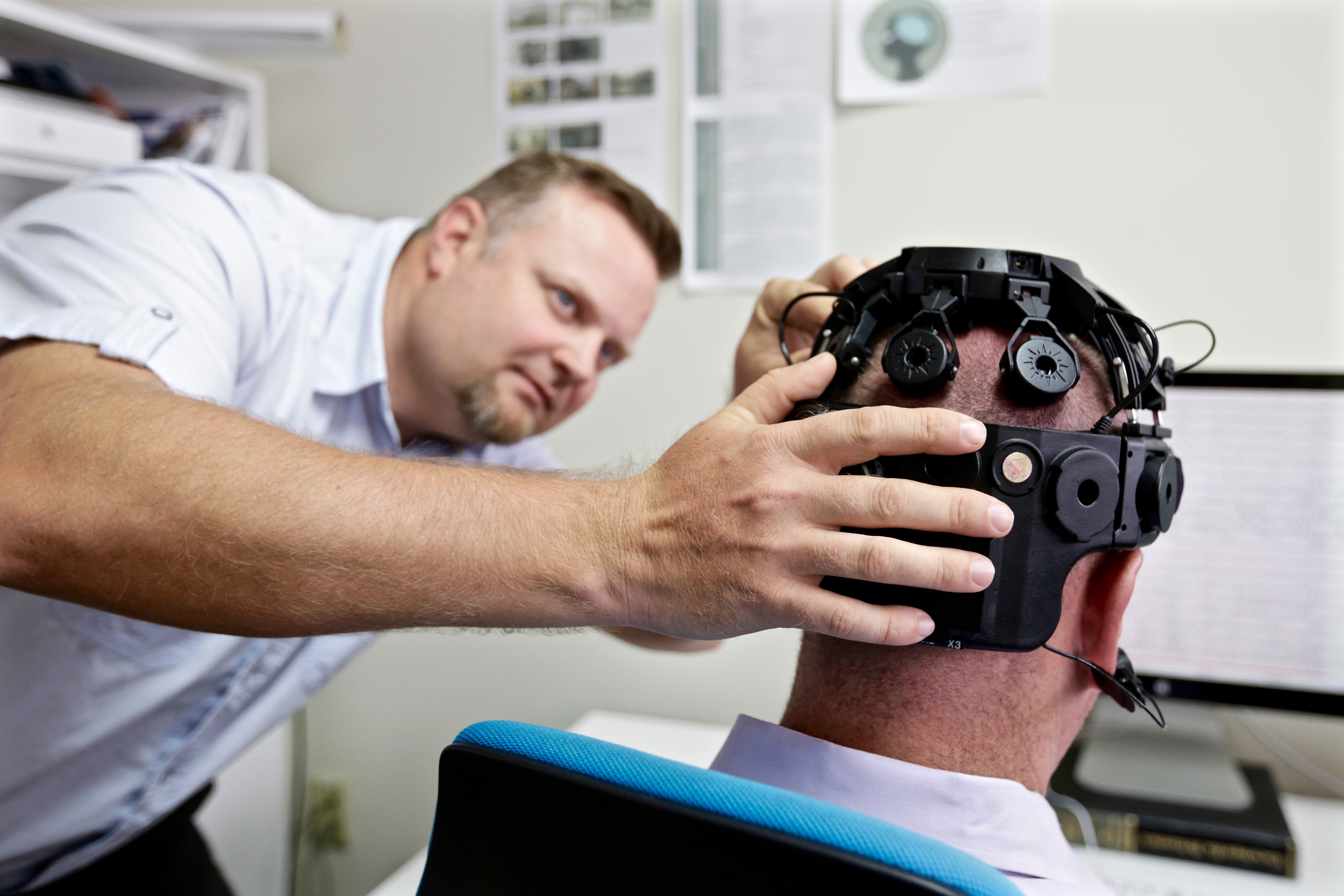
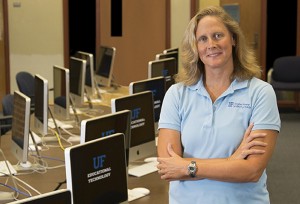

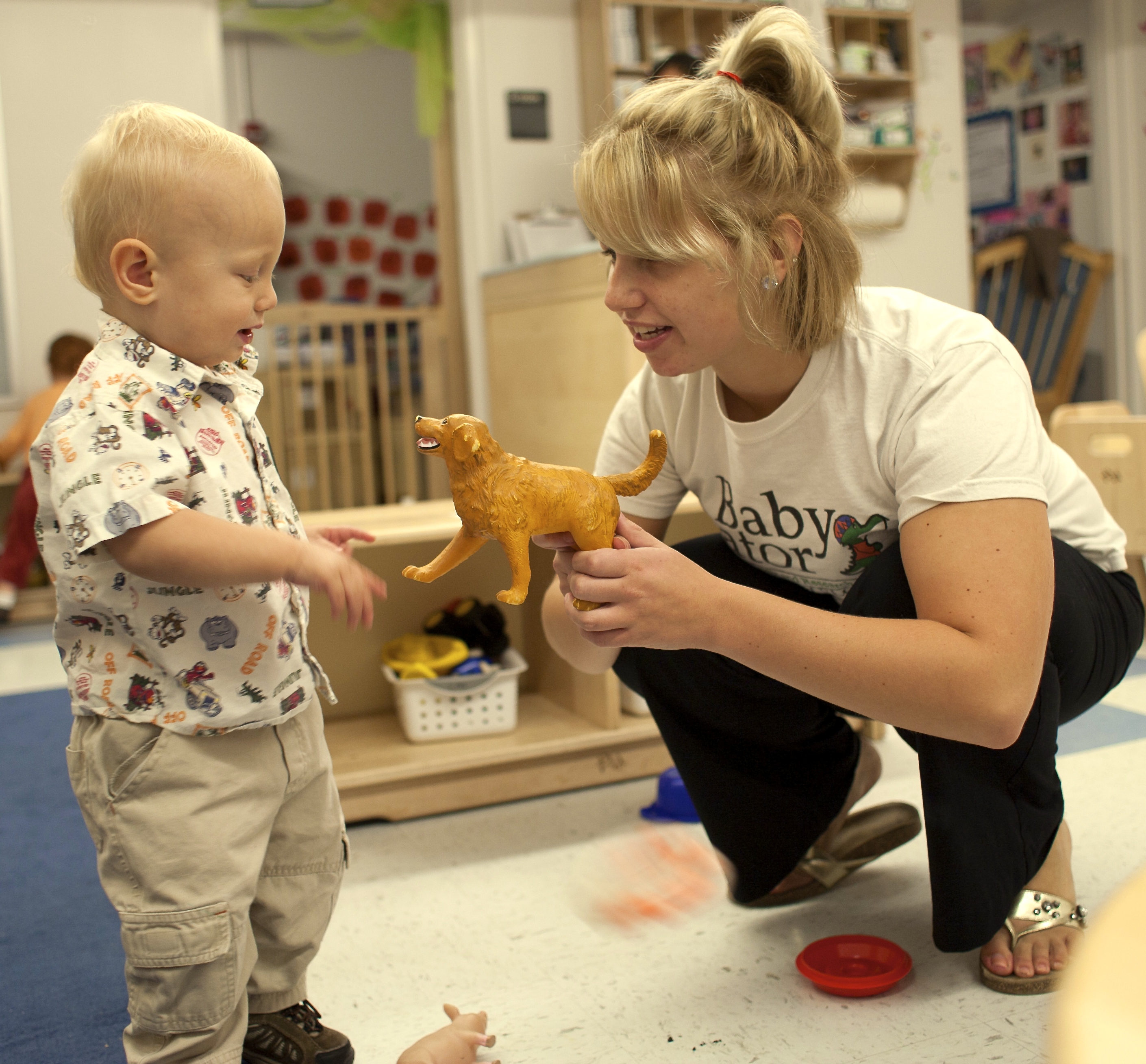
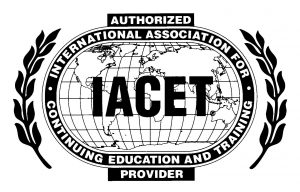
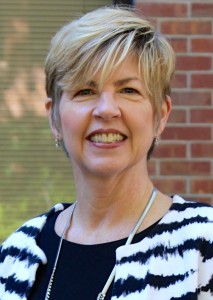
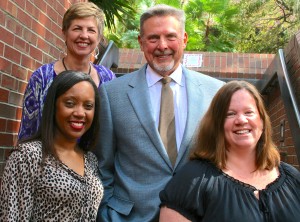
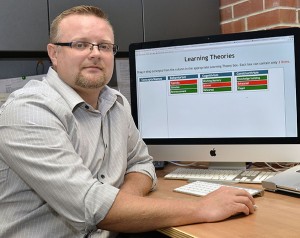
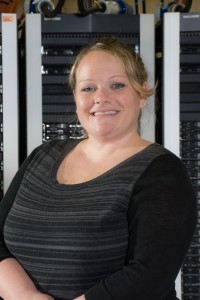
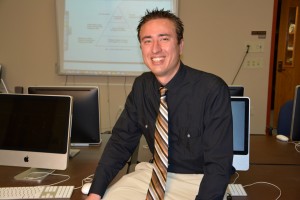
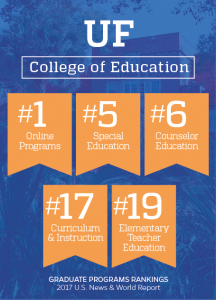
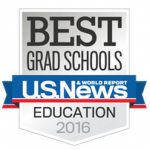
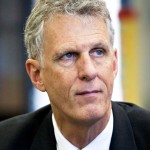
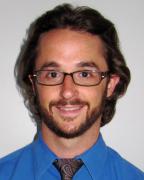
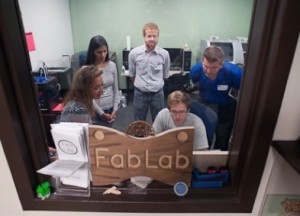
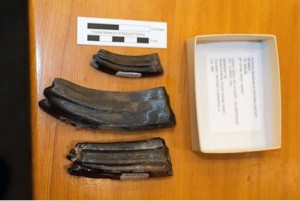
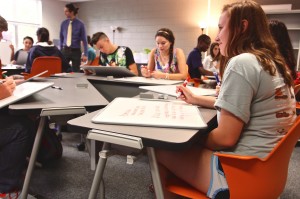 Inspired by the early impact of P.K. Yonge Developmental Research School’s new, state-of-the-art elementary wing, faculty researchers from PKY and the University of Florida are teaming up on pioneering studies into how school building design can influence and improve schooling for both teachers and students.
Inspired by the early impact of P.K. Yonge Developmental Research School’s new, state-of-the-art elementary wing, faculty researchers from PKY and the University of Florida are teaming up on pioneering studies into how school building design can influence and improve schooling for both teachers and students.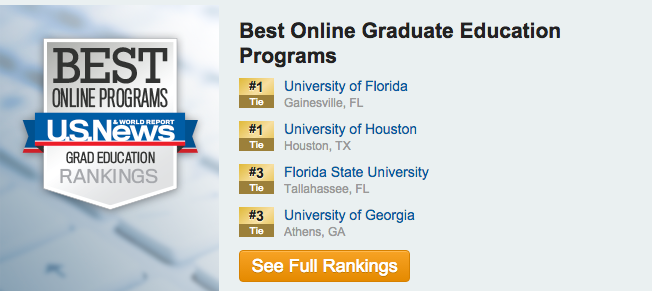
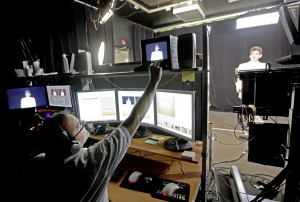
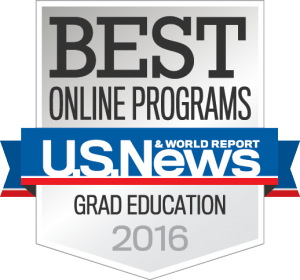 “The videos link to a specific assignment or learning activity,” said Bruce Mousa, coordinator of UF’s educational leadership online degree program. Mousa also has been known to upload videos from his personal computer to provide feedback to individual students.
“The videos link to a specific assignment or learning activity,” said Bruce Mousa, coordinator of UF’s educational leadership online degree program. Mousa also has been known to upload videos from his personal computer to provide feedback to individual students.